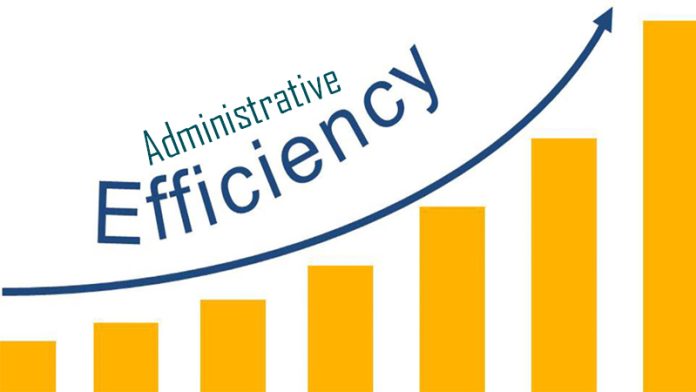The recent high-level meetings chaired by the Chief Minister signify a renewed focus on strengthening the administrative machinery in Jammu and Kashmir. The directives issued during these discussions underscore the Government’s commitment to ensuring efficiency, transparency and citizen-centric governance. From cadre management to public grievance redressal systems, these steps are pivotal for addressing long-standing systemic challenges.
The Chief Minister’s directive to impose a complete ban on re-employment, extensions, additional charges, and attachments, barring extraordinary circumstances, is a significant step. This move addresses a pervasive issue that has contributed to stagnation and inefficiency within the administrative framework. Practices like re-employment and extensions often create bottlenecks, depriving deserving officers of growth opportunities. CM’s emphasis on curbing such practices, especially in critical departments like Health & Medical Education and Education, reflects a much-needed resolve to ensure meritocracy and dynamism in governance. Health centres and schools struggle with day-to-day operations as many staff have secured attachments as an alternative to regular transfers. The stagnation among officers of the Jammu and Kashmir Administrative Service (JKAS) was another issue that received due attention. The Chief Minister’s call for actionable solutions to address this problem is timely. Stagnation not only hampers morale but also impacts the overall efficiency of administrative services. The focus on compassionate appointments under SRO-43 and the J&K Rehabilitation Assistance Scheme-2022 highlights a compassionate approach to policymaking. Streamlining these schemes to make them more accessible and efficient will be a step toward providing timely assistance to deserving families.
Equally noteworthy is the Government’s commitment to leveraging technology for better governance. The review of IT initiatives like SPARROW (Smart Performance Appraisal Report Recording Online Window) and JKHRMS (J&K Human Resource Management System) is a clear indication of the administration’s intent to modernise and enhance transparency. These tools are crucial for ensuring accountability, streamlining appraisals, and managing personnel data effectively. Another significant development discussed was the establishment of Raabta-a single-window interface designed to enhance Government-citizen interaction. The integration of this platform with the existing JK Samadhan grievance redressal system represents a major leap toward creating a unified framework for addressing public grievances. By combining offline and online modes for grievance submission, Raabta promises inclusivity, ensuring that citizens from all walks of life can engage with the administration effectively. The initiative’s focus on timely resolution of grievances and public participation in governance reflects a progressive approach. CM has aptly described Raabta as a bridge between the Government and the people, a description that captures its essence as a tool for fostering trust and transparency. The integration of Raabta with IT systems, supported by the technical expertise of BISAG (Bhaskaracharya National Institute for Space Applications and Geo-informatics), ensures that this platform will not only be citizen-friendly but also technologically robust.
The CM’s directive to address disparities in the distribution of posts following the reorganisation of J&K and the creation of Ladakh as a UT is both necessary and forward-looking. The reorganisation has inevitably led to discrepancies in the allocation of resources, and a comprehensive review will ensure that Jammu and Kashmir has adequate posts to meet its administrative demands. A balanced distribution of posts is crucial for ensuring that both urban and rural areas receive equitable administrative attention.
The reforms and initiatives unveiled during these discussions are encouraging. They not only promise to address immediate administrative challenges but also lay the groundwork for a more streamlined and citizen-focused governance model in J&K. The CM’s emphasis on meritocracy, transparency, and public service reflects a vision that prioritises the well-being of citizens and the efficiency of the administration. For an administration to truly function as a public service, it must be accessible, responsive, and efficient. The steps outlined in these meetings address these fundamental aspects. However, the success of these initiatives will ultimately depend on their execution. Clear timelines, accountability mechanisms, and regular reviews will be critical to ensuring that the directives are implemented effectively.


